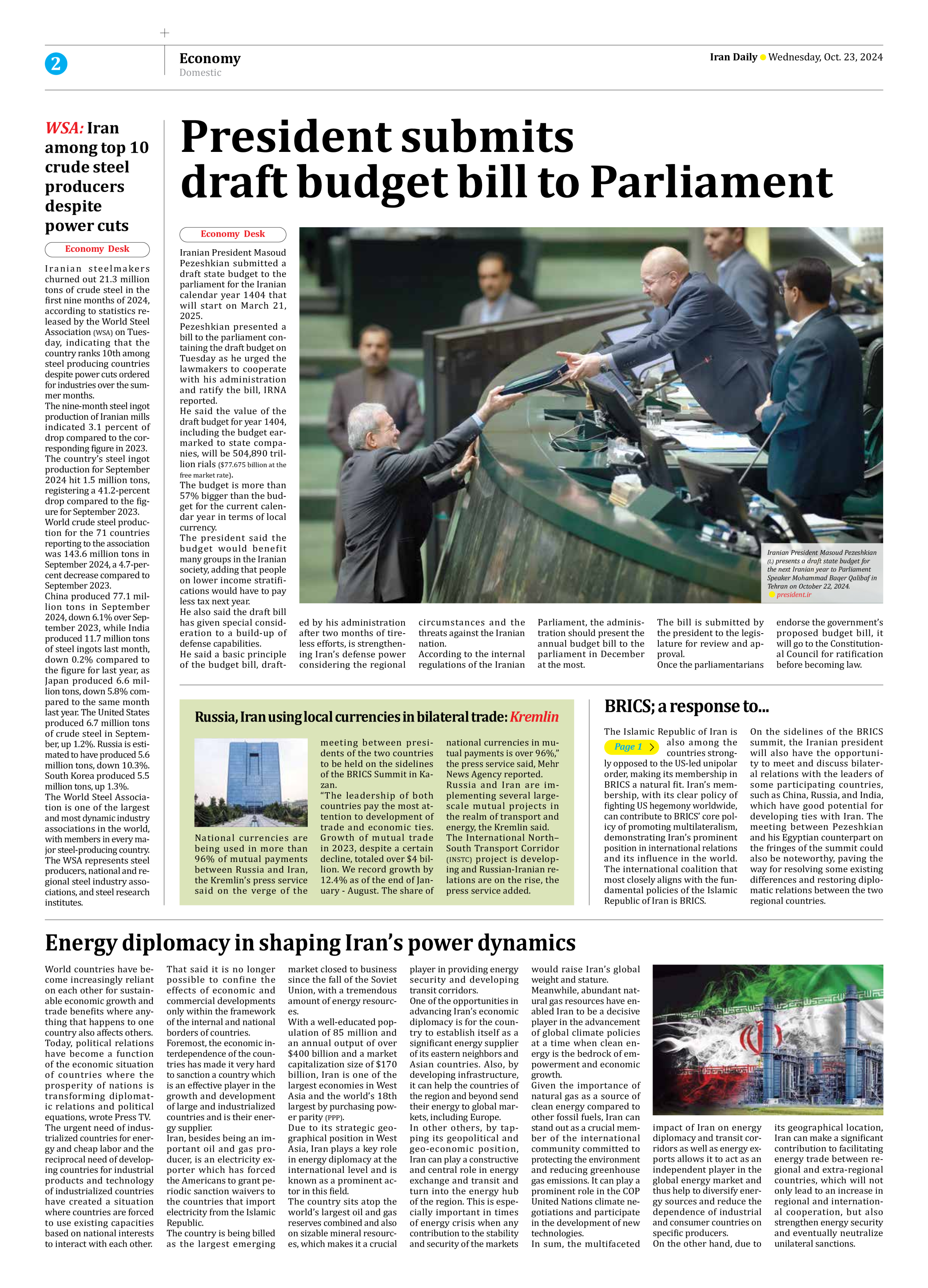
Copy in clipboard...
Energy diplomacy in shaping Iran’s power dynamics
Today, political relations have become a function of the economic situation of countries where the prosperity of nations is transforming diplomatic relations and political equations, wrote Press TV.
The urgent need of industrialized countries for energy and cheap labor and the reciprocal need of developing countries for industrial products and technology of industrialized countries have created a situation where countries are forced to use existing capacities based on national interests to interact with each other.
That said it is no longer possible to confine the effects of economic and commercial developments only within the framework of the internal and national borders of countries.
Foremost, the economic interdependence of the countries has made it very hard to sanction a country which is an effective player in the growth and development of large and industrialized countries and is their energy supplier.
Iran, besides being an important oil and gas producer, is an electricity exporter which has forced the Americans to grant periodic sanction waivers to the countries that import electricity from the Islamic Republic.
The country is being billed as the largest emerging market closed to business since the fall of the Soviet Union, with a tremendous amount of energy resources.
With a well-educated population of 85 million and an annual output of over $400 billion and a market capitalization size of $170 billion, Iran is one of the largest economies in West Asia and the world’s 18th largest by purchasing power parity (PPP).
Due to its strategic geographical position in West Asia, Iran plays a key role in energy diplomacy at the international level and is known as a prominent actor in this field.
The country sits atop the world’s largest oil and gas reserves combined and also on sizable mineral resources, which makes it a crucial player in providing energy security and developing transit corridors.
One of the opportunities in advancing Iran’s economic diplomacy is for the country to establish itself as a significant energy supplier of its eastern neighbors and Asian countries. Also, by developing infrastructure, it can help the countries of the region and beyond send their energy to global markets, including Europe.
In other others, by tapping its geopolitical and geo-economic position, Iran can play a constructive and central role in energy exchange and transit and turn into the energy hub of the region. This is especially important in times of energy crisis when any contribution to the stability and security of the markets would raise Iran’s global weight and stature.
Meanwhile, abundant natural gas resources have enabled Iran to be a decisive player in the advancement of global climate policies at a time when clean energy is the bedrock of empowerment and economic growth.
Given the importance of natural gas as a source of clean energy compared to other fossil fuels, Iran can stand out as a crucial member of the international community committed to protecting the environment and reducing greenhouse gas emissions. It can play a prominent role in the COP United Nations climate negotiations and participate in the development of new technologies.
In sum, the multifaceted impact of Iran on energy diplomacy and transit corridors as well as energy exports allows it to act as an independent player in the global energy market and thus help to diversify energy sources and reduce the dependence of industrial and consumer countries on specific producers.
On the other hand, due to its geographical location, Iran can make a significant contribution to facilitating energy trade between regional and extra-regional countries, which will not only lead to an increase in regional and international cooperation, but also strengthen energy security and eventually neutralize unilateral sanctions.







